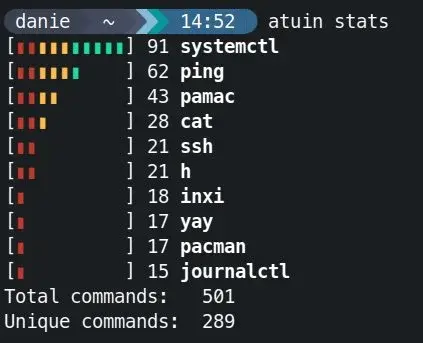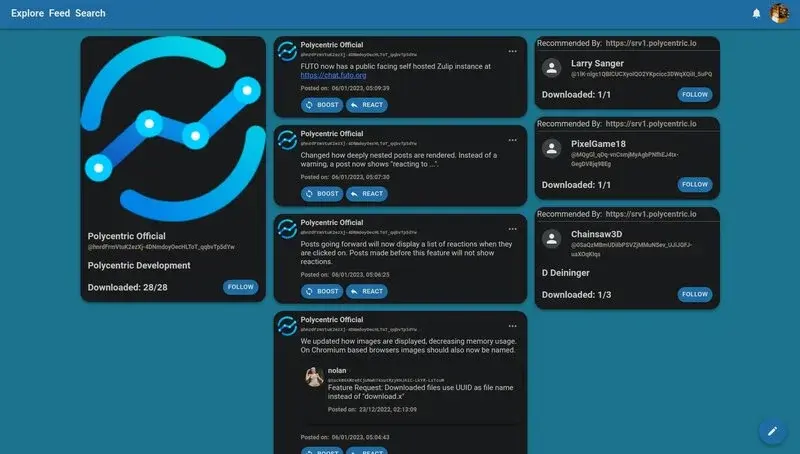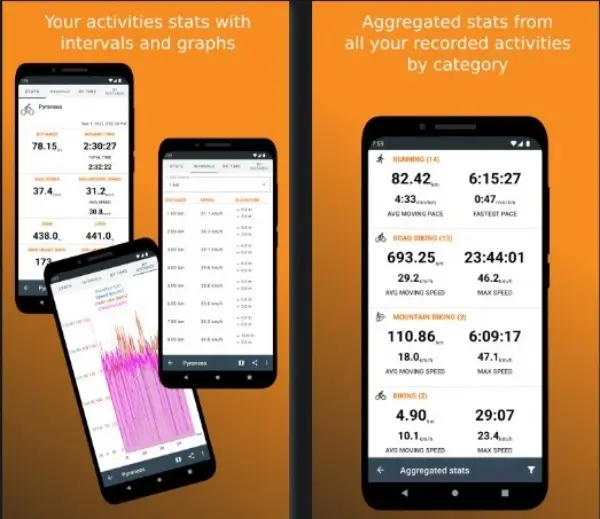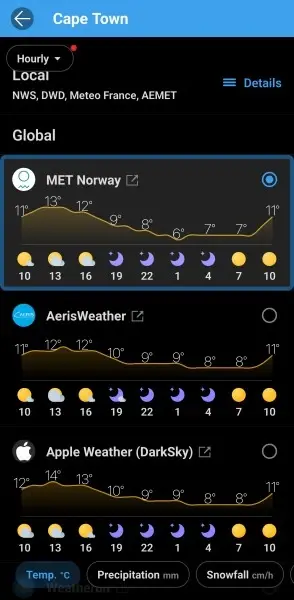

GadgeteerZA
I blog about #technology #gadgets #opensource #FOSS #greentech #traditionalwetshaving #LCHF #health #alternativeto #hamradio (ZS1OSS) #southafrica - see https://gadgeteer.co.za/blog. I also blog to various other social networks which I list at https://gadgeteer.co.za/social-networks-i-post-to.
- 39 Posts
- 87 Comments

 English
English- •
- jumblie.com
- •
- 5M
- •

 English
English- •
- www.token2.ch
- •
- 5M
- •
Token2 is an open-source Swiss FIDO2 security key that brings innovative features at a cheaper price


No they don’t have a central managed hosting, and that is the point they are making. It is intended for someone to host for their family and friends. There may be some hosting it at various places but no central list you can find them on. Those sites, of course, will federate with other Fediverse networks, but no-one will necessarily even know they are GoToSocial nodes.


Yes I think they’re meaning they’re still adding lots of new features possibly, but it is a bit confusing as I think of Alpha as raw and not production ready. Beta can be ready for testing with brand new features, and stable is usually production ready and all features already passed beta testing. I get it is for home use but still. Maybe they’re covering themselves legally, but then you can just say “use at your own risk”. It’s possible too they don’t have separate branches at all, and just add/update/fix the “alpha” version.


From their site: “It is already deployable and useable, and it federates cleanly with many other Fediverse servers (not yet all). However, many things are not yet implemented, and there are plenty of bugs! We foresee entering beta around the beginning of 2024.”. I would say it should be described more as beta by now from that description.
Gmail was in beta for many years whilst it was in production, and Meshtastic only has alpha and beta releases, with no “stable” release. I think some projects feel if they are still adding features it says in beta and never reall is in stable until they stop adding features. But yes they should actually iterate through alpha, beta, RC, stable. Not everyone does, though.


Yes, as there is full control over what is exposed or mapped for the app including network ports, and future updates don’t get broken by inconsistent dependencies. I suppose if you run only one service on a machine and stick to standard ports for reverse proxying then maybe a binary install can be simpler. But if you want to install multiple apps ona server containers does become easier to manage and update.


Yes not “new” per se, but it is still in early Alpha release and mostly unknown to everyone. Nextcloud and most of the others have been around many years and have had iterative stable releases. I was actually on Mastodon since 2016 so GoToSocial is a lot newer at around 3 years. But yes point taken, “new” is not the best description.

 English
English- •
- github.com
- •
- 6M
- •


We’ve not actually seen for sure that TikTok data is being passed to the Chinese government - supposedly the USA data is being kept separately. But we have certainly seen US data brokers gathering data from all over in the US and selling that on to any 3rd party (domestic government, as well as anyone else). Facebook has been caught more than once being in the business of leaking private data. I’m just surprised that the US gov did not leave this choice up to its citizens to choose on - the ideas of freedom of choice and speech seem to be rather dictated here now.
I’m just wondering if it is not more a case of the US gov has no control itself over TikTok (think US CLOUD Act) and this is what is irking them. I’m not in the US so one way or the other I don’t really mind. What I do mind about though is that TikTok does not sell out to a US company. We really don’t need one single country controlling all the mainstream social media platforms. US laws after all do not represent all of mankind, so some diversity is a good thing.
So I guess I’m rather for a “ban” than a “sell out”.

 English
English- •
- www.xda-developers.com
- •
- 7M
- •

 English
English- •
- techcrunch.com
- •
- 7M
- •


Yes, it could be that, and may explain why the Nazi images came out like they did. But it sounded more like to me, Google was forcing diversity into the images deliberately. But sometimes that does not make sense. For general requests, yes. Otherwise they can just as well decide that grass should not always be green or brown, but sometimes also just make it blue or purple for variety.


That is really just not relevant at all to the discussion here, but to satisfy your curiosity, I’m busy building a Lego model that a family member sent me, so the generated AI photo was supposed to depict someone that looked vaguely like me building such a Lego model. I used Bing in the past, and it has usually delivered 4 usable choices. Fact that Google gave me something that was distinctly NOT what I asked for, means it is messing with the specifics that are asked for.


Sometimes you do want something specific. I can understand if someone just asked for a person x, y, z and then gets a broader selection of men, women, young, old, black or white. But if one asks for a middle-aged white man, I would not expect it to respond with a young, Black women, just to have variety. I’d expect other non-stated variables to be varied. It’s like asking for a scene of specifically leafy green trees, then I would not expect to see a whole lot of leafless trees.


Yes, but it does not really matter what the rest of the prompt detail was? The point was, it was supposed to me an image of me doing an activity. I’d clearly prompted for a white man, but it gave me two other images that were completely not that. Why was Gemini deviating from specific prompts like that? Seems the identical issue to the case with the Nazis, just introducing variations completely of its own.


It’s not just historical. I’m a white male and I prompted Gemini to create images for me if a middle aged white man building a Lego set etc. Only one image was a white male and two of the others wrecan Indian and a Black male. Why when I asked for a white male. It was an image I wanted to share to my family. Why would Gemini go off the prompt? I did not ask for diversity, nor was it expected for that purpose, and I got no other options for images which I could consider so it was a fail.


Not sure what you mean by management, or which aspect of management? The issue was more about acceptance of community enhancements through the open source code project. Some contributors felt they could move faster with more diverse enhancements. It may be something like the LibreOffice fork from OpenOffice, where some wanted to just move faster with changes.

 English
English- •
- beehaw.org
- •
- 10M
- •

 English
English- •
- beehaw.org
- •
- 10M
- •


Thanks for that extra info - yes not much of that detail was on their site. Nostr has been around a bit longer I use it daily (amongst other networks) and it seemed the most similar network to Polycentric that I’ve seen (the philosophy). I did a video at https://www.youtube.com/watch?v=8mSyMCJlSwA about Nostr, but right now there is not that much to get me excited enough about Polycentric yet.

 English
English- •
- beehaw.org
- •
- 10M
- •


A broader context given at https://cleantechnica.com/2023/12/03/adding-context-to-that-consumer-reports-electric-car-reliability-report/
Consumer Reports also grouped powertrains together when discussing reliability, which is where some issues start to appear. Apparently, EVs suffered 79% more problems than gas-powered vehicles. That will undoubtedly lead to shock headlines, but it’s also misleading, Autoblog says. Most EVs are new to the market, which goes back to the cliché mentioned earlier. There are also a lot fewer make/models availability, meaning that simply averaging all models together will result in a few bad apples skewing the results.
Apart from the Apple Watch (which became a door stopper when I moved back to Android) I’ve not had a lot of success with really good accuracy on watches. I actually opted to get a Polar H10 chest strap, and it is really super accurate. I usually live monitor the data on the Polar app on my phone (and it uploads to Strava, and then to Samsung Health), or if I’m outside I pair my Samsung Galaxy Watch to it with the Sporty Go! app so it shows on my watch.
There’s no mention though in the linked article that Richard actually thinks this? Both XMPP and Nostr are extensible. Nostr saw accounts linked to a server as weakness, and therefore went with many relays (any of which can be used).
But as also mentioned, Richard is actually very active on Mastodon today. ActivityPub is not the best protocol around, but it is now a W3C standard and seems to have more popular uptake than both XMPP and Nostr (Nostr having the excuse that it is very new still).
BTW I’m active daily on XMPP, Nostr, Mastodon, IRC, and many more, so have no particular stake in any one.

 English
English- •
- debugpointnews.com
- •
- 1Y
- •

 English
English- •
- techcrunch.com
- •
- 1Y
- •

 English
English- •
- beehaw.org
- •
- 1Y
- •

 English
English- •
- beehaw.org
- •
- 1Y
- •

 English
English- •
- beehaw.org
- •
- 1Y
- •

 English
English- •
- beehaw.org
- •
- 1Y
- •

 English
English- •
- beehaw.org
- •
- 1Y
- •

 English
English- •
- www.timeslive.co.za
- •
- 1Y
- •

 English
English- •
- lemmy.radio
- •
- 1Y
- •

 English
English- •
- youtu.be
- •
- 1Y
- •

 English
English- •
- www.howtogeek.com
- •
- 1Y
- •

 English
English- •
- www.wired.com
- •
- 1Y
- •

 English
English- •
- www.grc.com
- •
- 1Y
- •

 English
English- •
- www.reviewgeek.com
- •
- 1Y
- •

 English
English- •
- www.howtogeek.com
- •
- 1Y
- •

 English
English- •
- youtu.be
- •
- 1Y
- •

 English
English- •
- veloren.net
- •
- 1Y
- •

 English
English- •
- thenewstack.io
- •
- 1Y
- •















Today was a bit easier
Jumblie #242 🔴🔵🟢🟠 7 guesses in 2m 14s https://jumblie.com